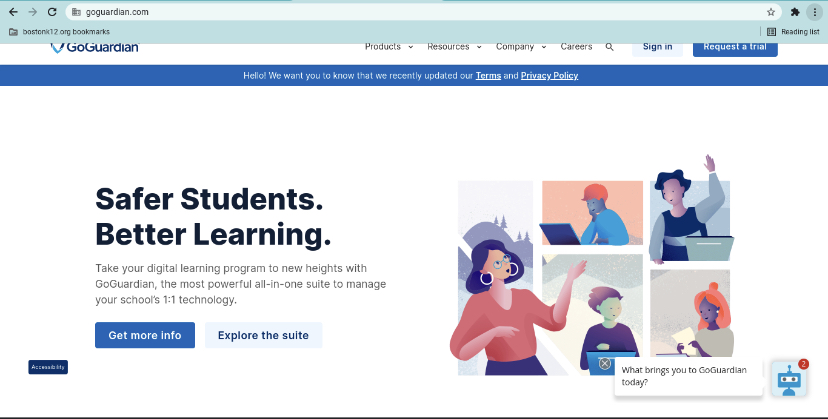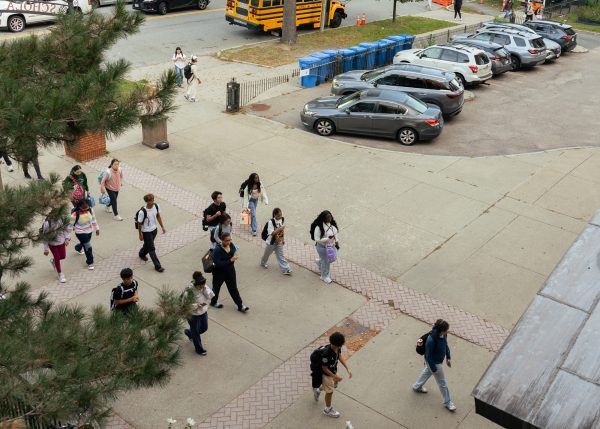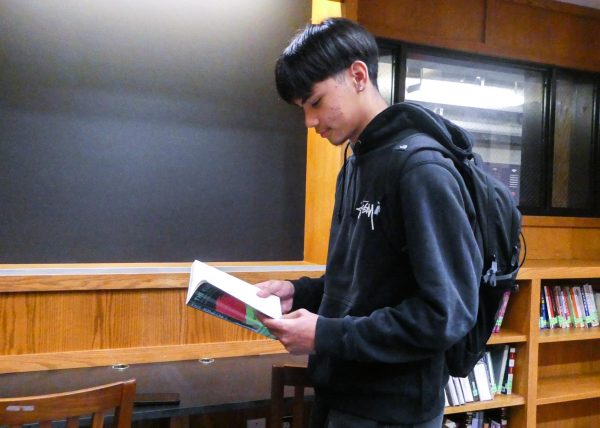Hey, Hey, Ho, Ho: GoGuardian Must Go
After the return from remote learning, in-person school has incorporated new Chromebooks into the daily structure of many classes and programs such as the Massachusetts Comprehensive Assessment System (MCAS) and AP testing. With the increase in technology usage, however, some teachers have turned to new methods of ensuring students are on task — specifically, GoGuardian.
GoGuardian, a software that enables teachers to watch students’ activity on their Chromebooks, has gained support from those who claim it guarantees students are on-task. At first glance, most would find this argument reasonable enough — but there is more to the story.
GoGuardian may help achieve increased productivity, but it does so at a significant cost, harming student-teacher relationships and provoking widespread resentment throughout the student body. When asked whether he thought the program kept students focused, Boston Latin School Classics teacher Mr. John Kerpan, who does not currently use GoGuardian, responds, “Yes, through fear maybe, but yes.”
Fear, however, is not a justifiable tool for keeping student focus.
Using GoGuardian means having access to all students’ screens at any given time throughout a class period. Teachers can access all parts of a students’ screen, noting every tab and even how long a student has spent on it — including their email, private pages and personal files.
“It’s kind of weird, to be honest, […] how do I know that they don’t read my messages?” says Olivia Pappas (IV), calling it “creepy.” GoGuardian creates an environment that makes students feel uncomfortable and on edge; it induces anxiety and erodes trust. The administration and teach-
ers should refrain from using it.
GoGuardian invades students’ privacy by violating the mutual respect students and teachers usually give each other in classes. Mr. Kerpan adds, “If I were a student, thinking back to when I was a student, if I didn’t want my teacher to read my email, I wouldn’t check my email during school.” Closing tabs like Gmail is one way to guarantee privacy over emails, but this is obviously not a workable solution; students should not have to worry themselves over what tabs may be subject to prying eyes at any given moment.
The knowledge that a teacher can see personal information from any tab is unsettling to students. It influences their in-person learning and productivity in class. Students become less motivated to engage seriously with their teacher and be thoughtful with the material, undermining the original purpose.
Mr. Eric Cordeiro, a BLS history teacher sees GoGuardian differently: he feels that it does not have a notable effect on the relationship between student and teacher, at least from a teacher’s point of view. “Even without technology, if I just walked around and patrolled people, all that stuff, they’d probably feel the same way,” says Mr. Cordeiro.
The use of GoGuardian, however, makes students feel that they are not trustworthy and require constant monitoring, like elementary school children — hardly an empowering feeling. On mutual trust between students and teachers, Pappas says, “That’s the main foundation of my relationships with my teachers. The teachers should trust me.” The option of using GoGuardian may hinder the likelihood of students reaching out for help, something all teachers encourage, as it would make them feel more like a trouble-prone offender than a motivated scholar.
In the BLS community, it is key that students are able to live up to their potential as a person and student without the frustrating interference of surveillance technology. Teachers should not rely on online managing tools like GoGuardian to keep students on task and should instead, focus on building a stronger student-teacher relationship with their class, while still enabling the use of technology. Treat us like learners, not lawbreakers.







